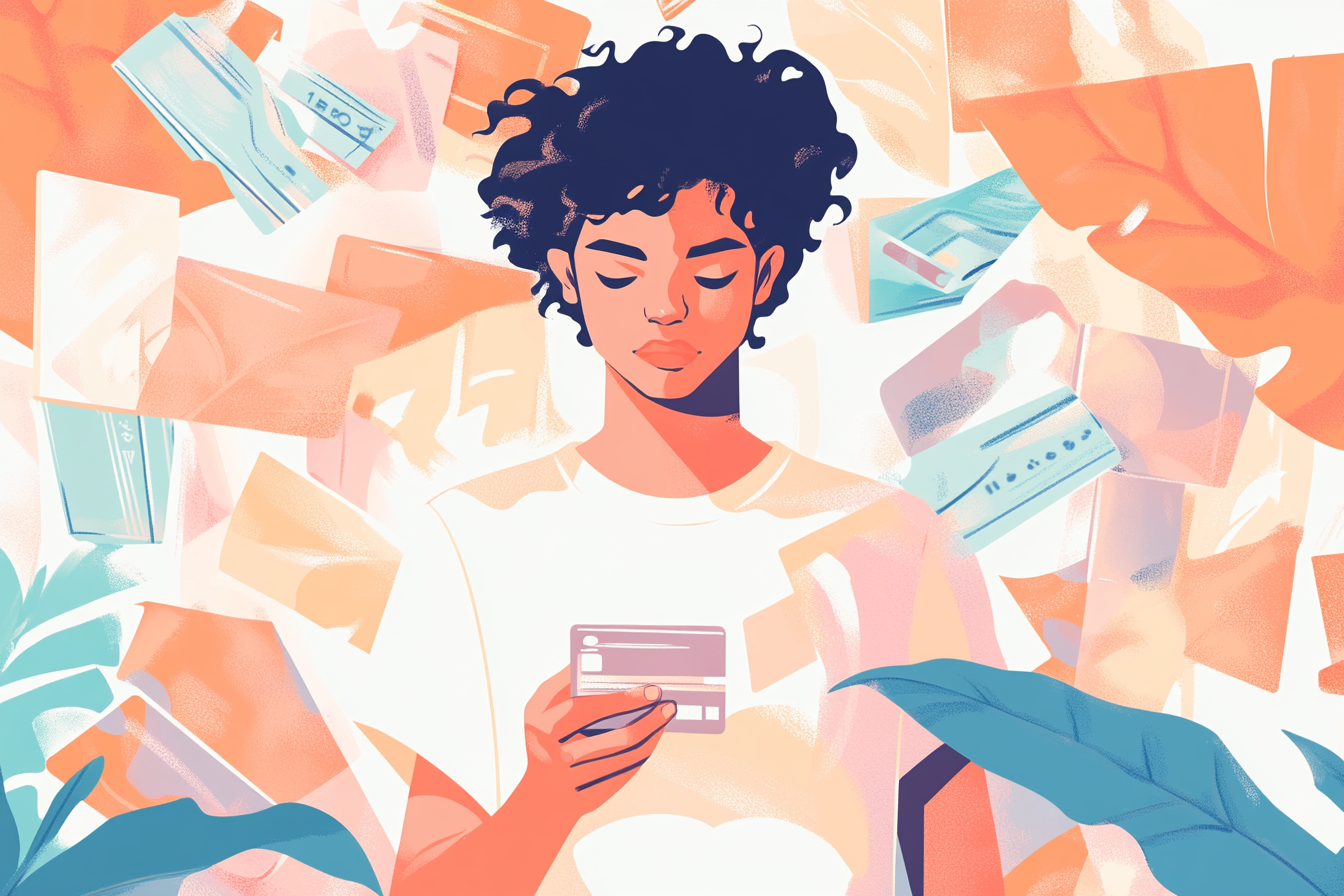Having credit card debt is often incredibly stressful. Not only do you need to create a plan to pay what you owe, but you may find it difficult to access new lines of credit you need until you take care of your current debts. The high interest rates, late fees, and other charges of many credit cards can create a cycle of falling further behind and needing to utilize more credit to make ends meet. However, you don’t have to stay stuck. Reduce your credit card balances fast with these actionable tips that eliminate debt and improve your financial health.
Impact of Carrying Balances on Your Credit Cards

Carrying a credit card balance from month to month is more than anxiety-inducing. It significantly impacts your cash flow, interest rates, and credit score. As your balance balloons with additional fees, your minimum payment rises, forcing you to allocate more of your payment to your credit card to stay current on your payments.
Falling behind on your payments can cause a steep drop in your credit score and create a poor payment history. These factors can make it difficult to qualify for new credit when you need it. Lenders view your credit report to determine if you are a good risk.
Further, increasing your credit utilization ratio also impacts your score. Your credit utilization is the amount of your available credit that you use. Most experts recommended staying below 30% utilization. If you go higher than this, you are at a greater risk and may struggle to qualify for new credit with favorable interest rates and terms.
Benefits of Eliminating Credit Card Debt
Along with the financial benefits, resolving your credit card balance has psychological benefits. Debt often causes high levels of stress, a pessimistic attitude towards the future, and a stagnant social life. Eliminating your debt can immediately improve your emotional well-being, allow you to plan for your future, and help you make choices based on what you want to do.
If you carried credit card debt for a while, then freeing yourself from this burden can also have a profound impact on your life’s goals. Now that debt isn’t your primary financial focus, you can explore options like buying a home, starting a family, moving to a new city, or even changing careers.
Effective Debt Relief Strategies
If you want to get out of credit card debt, you need to start by knowing where you stand. Gather your bills and make a note of every credit card account you have, along with the total balance, interest rate, and minimum payment.
Snowball Method
The Snowball Method has you start with the smallest balance first. You continue to pay the minimum due on all of your debts, but throw any extra money you have at the smallest debt to pay it in full fast. Once that debt is resolved, you can put the money toward the next smallest balance. This method may cost a little more in terms of interest overall, but it provides powerful motivation as you pay off your smaller accounts.
Avalanche Method
The Avalanche Method first focuses on paying the debt with the highest interest rate. This can save you money overall by reducing the total amount of interest you pay. As with the Snowball Method, once you pay off one account, you can put the money toward the account with the next highest interest rate.
Debt Consolidation
Consolidating several high-interest credit cards may help you pay off your debt faster. Look for a low-interest card that allows balance transfers, or consider utilizing your home’s equity to consolidate.
Keep yourself motivated. Check your credit score by requesting your credit report from all three credit reporting bureaus. You could also consider credit monitoring services to receive updates regarding any changes to your score. Seeing your score continue to rise as you pay down your debt can help you stay focused on your goal.
Pay More Than the Minimum Due to Get Out of Debt Faster
If you want to be free from credit card debt and the restrictions that come along with it, then you need to put as much money as possible into paying your debt down quickly. Start by examining your budget to find areas where you can cut costs. This could look like eliminating streaming services you rarely use, cutting back on entertainment, and cooking at home instead of dining out. You can also try switching to a cheaper phone plan and shopping around for better deals on your insurance. Carrying cash to pay for purchases can also help you avoid fees associated with credit cards. You’ll also likely become more aware of your spending habits by using cash.
Getting a part-time job can make a significant difference if you have the time and ability to put in the extra hours. Or, commit to putting all your extra money from tax returns, work bonuses and raises, and monetary gifts into your debt. Ultimately, paying off your credit cards is achievable once you create a plan and commit to following it through. The relief and accomplishment you’ll feel once you’re debt-free will make the temporary sacrifices worthwhile. Avoid getting into new debt by sticking to a budget and continuing to follow the smart financial strategies to get where you are now.
You might also be interested in: Maximizing Your Credit Card Rewards – 7 Tips to Consider


